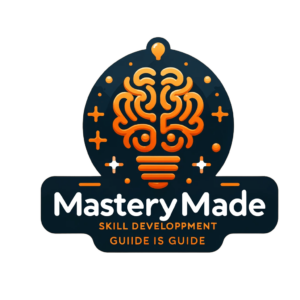The job search landscape continues to evolve, and staying atop this ever-shifting ground requires robust job search strategies that adapt to the current market. We understand the myriad challenges job seekers face and are here to light the path with successful job search strategies that have proven effective for countless professionals across the United States. Let’s deep-dive into the job search tactics that could make a significant difference in your pursuit of the ideal career opportunity.
Key Takeaways
- Adopt dynamic job search tactics to stay ahead in the competitive market.
- Elevate your job hunting game with successful job search strategies.
- Understand the significance of adapting your approach based on job market trends.
- Leverage expert advice to refine your job search techniques.
- Gain insights on how personalized job search strategies can bolster your employment prospects.
Understanding the Current Job Market
As we navigate through the evolving landscape of the job market, it’s crucial to stay informed and agile. Keeping abreast of job market trends is not just beneficial, it’s necessary for crafting an effective job search technique. With data sourced from organizations like the Bureau of Labor Statistics and in-depth reports from networks such as LinkedIn, we’re empowered to dissect industry fluctuations and provide you with unparalleled job search advice. Here’s our analysis of the current market and tips on how to excel within it.
Analyzing Industry Trends
Industry trends serve as a compass for understanding where job opportunities are blossoming. By examining sectors experiencing growth, you can tailor your job search to industries showing positive employment rates. For instance, the technology and healthcare sectors have consistently shown resilience and expansion, even in challenging economic times.
Identifying High Demand Job Roles
The key to an effective job search is spotting roles that are in high demand. Roles in data analysis, cybersecurity, and digital marketing, for example, have seen a surge in need across various industries. Aligning your skills and career aspirations with these high-demand job roles not only heightens your chances of employment but also places you on a path for career progression.
Adjusting to New Job Market Realities
The job market continuously shifts, influenced by various economic, technological, and social factors. A traditional job search approach may no longer suffice. Instead, embracing digital networking platforms, enhancing your online presence, and acquiring new skills relevant to the digital age are steps that can set you apart. Adaptability is your best tool in securing your next position.
Crafting a Winning Resume and Cover Letter
As career navigators, we understand that a standout resume and cover letter are essential in scoring that coveted job interview. A resume isn’t just a list of jobs; it’s your personal brand’s showcase, and a cover letter is your chance to engage the hiring manager with your unique story. Let’s dive into some expert-backed resume tips and cover letter advice to power up your job search resources.
Firstly, your resume must align with the job you’re targeting. Customize it to highlight the skills and experiences directly relevant to the position. Think of it as your professional highlight reel: include quantifiable achievements, use action verbs, and maintain a clean, readable format.
For the cover letter, don’t simply repeat your resume. Use this space to explain how your experience will benefit the company, tell a compelling story about your career journey, and show that you’ve done your homework on who they are and what they stand for.
According to a survey from Jobvite, recruiters are looking for tailored applications—they want to feel like you’re speaking directly to them. Our tips are not just about getting noticed; they’re about building a connection.
Let’s break it down further:
- Start your resume with a powerful summary statement that captures your professional essence.
- Select a layout that’s both attractive and professional, letting your content shine without distractions.
- Identify keywords in job postings and incorporate them into your resume and cover letter to get past applicant tracking systems.
- Create bulleted lists to showcase responsibilities and accomplishments, making it easy for employers to scan.
For cover letters:
- Address the hiring manager by name, if possible, to add a personal touch.
- Open with a strong introduction that grabs attention and expresses your enthusiasm for the role.
- Show how your values align with the company culture.
- End with a call-to-action, inviting further discussion in an interview.

In essence, the perfect pairing of a resume and cover letter is your ticket to landing an interview. They should complement each other, telling a cohesive story about who you are, why you’re the best fit for the job, and how you can contribute to the potential employer’s success.
We’re committed to providing job seekers with valuable insights and guidance derived from career experts and hiring managers. Remember, every touchpoint with a potential employer is an opportunity to demonstrate your value—you just need the right resume tips and cover letter advice to do it.
Job Search Strategies
In an era where the job market is continuously evolving, having a dynamic approach to your job search is key to landing your dream role. We’re here to guide you through modern job search methods, introduce you to essential job search tools, and share invaluable networking tips that have shown effective results for countless job seekers across various industries. Let’s dive into the tactics that will refine your job search and get you noticed by potential employers.
Leveraging Online Job Portals
Online job portals such as Indeed and Glassdoor are more than just databases for open positions; they are sophisticated job search tools designed to connect candidates with the right opportunities. By creating a profile and uploading your resume, these platforms can help you get discovered by recruiters. We recommend using filters and alerts to streamline your search, focusing on roles that match your skills and preferences. Remember to regularly update your profile to maintain visibility and attract more interest from hiring managers.
Networking and Relationship Building
Our networking tips go beyond traditional advice. It’s about creating meaningful connections that can offer support, advice, and potentially lead to job opportunities. Industry events, professional conferences, and even virtual webinars can serve as platforms to meet like-minded professionals. Also, leverage LinkedIn to grow your professional network. Engage with industry leaders’ content, join discussions, and don’t hesitate to reach out with personalized messages to individuals whose career paths inspire you.
Utilizing Social Media for Job Hunting
Social media platforms can be potent job hunting tools when used strategically. Showcase your expertise on platforms like Twitter by joining professional chats and sharing industry-relevant content. Use Instagram to build a professional brand by sharing accomplishments and insights into your work life. Furthermore, ensure your profiles across all platforms are employer-friendly — a strong, professional online presence can be the difference between being passed over and landing an interview.
Effective Job Search Techniques
Embarking on your career journey requires more than just perusing classified ads; it’s about crafting a meticulous plan and deploying a suite of job search methods. We’re here to guide you through tailoring job hunting tips into successful and personalized job search strategies. Drawing from the wisdom of career counselors and the experiences of successful job seekers, we understand that the key to unlocking job search success is through setting achievable goals, meticulously tracking your applications, and following-up with potential employers in a timely manner.
Let’s delve into some techniques that can enhance your job search:
- Devise a clear job search plan with specific, measurable, and time-bound goals.
- Regularly update your resume and personalize your cover letter for each job application.
- Utilize a multichannel approach to job hunting, including online job boards, company websites, and industry-specific forums.
- Attend job fairs and career-related events to connect with employers and gather inside job market information.
- Enhance your online presence and use social media platforms to network and learn about new job openings.
- Implement a tracking system for your applications to manage follow-ups efficiently.
Following up on applications is a crucial, often overlooked step in the job search process:
“A well-timed follow-up can be the difference between getting lost in a pile of applications and securing an interview. It demonstrates your keen interest and keeps you top-of-mind for hiring managers.”
In today’s digital era, your online presence is as important as your resume. Consider the following:
| Platform | Usage for Job Search | Tips for Optimization |
|---|---|---|
| Professional networking, job listings, company research | Keep your profile up-to-date and engage with industry content. | |
| Indeed | Job discovery, company reviews | Use filters for targeted search and set up job alerts for relevant positions. |
| Networking with professionals, industry news | Follow companies and influencers, join conversations, and utilize hashtags. |
To support our insights, we offer a visual representation of a robust job search plan:

Adopting these effective job search techniques will propel you toward your career goals. By staying organized, maintaining a dynamic approach, and being persistent, you will increase your visibility in the job market and improve your chances for a successful job search. Remember, each application is a step closer to finding your ideal job, so embrace the journey with confidence and determination.
Upgrading Your Skills and Qualifications
In today’s fast-paced job market, continuous self-improvement is not just beneficial—it’s imperative. Investing in professional development is essential for anyone looking to advance their career. Whether it’s through formal education or industry-specific training, enhancing your skills can significantly improve your marketability to potential employers. Let’s explore some key avenues for upgrading your qualifications.
Continued Education and Professional Development
Expanding your knowledge through continued education is a robust strategy for career growth. Many institutions offer online courses, webinars, and certification programs that are accessible to working professionals. These programs provide flexibility and an opportunity to acquire new, relevant skills that can be directly applied to your job.
Embracing New Technologies and Tools
In a world where technology evolves at lightning speed, embracing technology is crucial. Familiarizing yourself with the latest software and tools in your field can set you apart from the competition. The integration of these technologies into your skill set demonstrates a willingness to adapt and learn, qualities highly valued by employers.
Seeking Out Feedback and Mentorship
We can’t underestimate the significance of feedback and mentorship. Constructive criticism allows us to reflect on our performance and pinpoint areas for improvement. By seeking out mentors who have forged successful paths in their careers, we receive invaluable guidance that can help steer our professional development in the right direction.
| Professional Development Avenue | Benefits | Recommended Actions |
|---|---|---|
| Online Courses | Acquire new skills, earn certifications | Enroll in courses relevant to your field |
| Webinars | Stay current with industry trends | Attend sessions by key industry figures |
| Technology Proficiency | Improve employability and efficiency | Learn and practice with new software and tools |
| Mentorship | Gain insights and advice from experienced professionals | Seek mentors through networks and professional associations |
| Feedback | Understand how to refine your performance | Request regular feedback from peers and supervisors |
By taking proactive steps in these areas, you ensure that your skill set remains relevant and sought-after in the evolving landscape of work. Let us embrace the journey of professional growth together, armed with the tools and knowledge to forge a successful career.
Conclusion
We’ve navigated through the intricacies of modern job hunting, spotlighting optimized job search approaches designed to set you apart in a competitive market. By understanding job market trends, crafting a resonating resume, leveraging key online platforms, expanding your network, and continuously enhancing your skillset, you’ve gained a comprehensive blueprint for job search success.
It’s our hope that by employing these effective job search techniques, you feel equipped with an arsenal of tools to not only pursue but also attain your desired career outcomes. Remember, job hunting is an evolving process, and as you adapt to the job market’s changing dynamics, these strategies will help maintain your competitive edge.
Embrace the journey ahead with confidence, knowing that each step taken is a building block towards your ultimate goal—job search success. Armed with knowledge, resourcefulness, and determination, we’re optimistic about the prospects that await you. Let’s march forward, prepared to seize the opportunities that align with both our aspirations and the market’s demands.
FAQ
What job search strategies are most successful today?
Today’s most successful job search strategies involve leveraging digital platforms, networking, tailoring your resume and cover letter for each position, and continually enhancing your skills. Additionally, setting clear goals, using online job portals effectively, and maintaining a strong online professional presence can be very beneficial.
How can I stay informed about current job market trends?
It’s essential to regularly check industry-specific news, follow market analysis reports from reliable sources like the Bureau of Labor Statistics, and engage with professional social media groups and forums. Subscribing to newsletters from career experts and keeping an eye on reports from platforms like LinkedIn about in-demand job roles can also help you stay updated.
What are some effective job search techniques apart from online applications?
Beyond online applications, effective job search techniques include networking, seeking informational interviews, attending industry events and workshops, and reaching out directly to companies of interest. Customizing your application materials to align with the job role and employer expectations is also important, as is following up on your applications.
How important is having a strong resume and cover letter?
A strong resume and cover letter are crucial as they serve as your first impression to a potential employer. They need to concisely showcase your strengths, relevant experience, and how you stand out from other candidates. Tailoring them to the specific job and company can greatly increase your chances of securing an interview.
Can social media platforms really help in finding a job?
Absolutely! Social media platforms can be powerful tools for job hunting. Sites like LinkedIn allow you to establish a professional profile, network with others in your industry, and learn about job openings. Twitter and Facebook can also help you connect with employers, while platforms like Instagram can be used to build a professional brand.
What role does networking play in a job search?
Networking is a vital component of any job search. It can open doors to opportunities that aren’t advertised, provide insider knowledge about companies and roles, and connect you with mentors or referrals. Investing time in building and nurturing professional relationships can significantly enhance your job search outcomes.
How can I upgrade my skills to make myself more marketable?
To upgrade your skills, consider enrolling in relevant courses, either online or in-person, obtaining certifications, attending workshops and seminars, and staying current with new tools and technologies in your field. Seeking mentorship and feedback can also help you identify areas for improvement and development.











